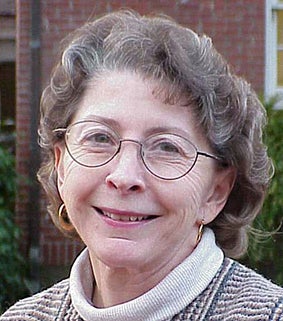Parents and physicians around the world are catching social and learning disorders early on, thanks to an innovative preschool screening tool developed by two University of Oregon researchers.
Now, thanks to the generosity of those researchers, the College of Education program that gave birth to the developmental assessment tool will have an endowment to attract its next visionary leader.
Diane Bricker, Jane Kaplan Squires and Paul Kaplan have made a combined $1.2 million gift to endow the Bricker/Squires Chair in Early Intervention/Early Childhood Special Education.
This gift will support a professor who can continue the trajectory of training high quality graduate students, researching new methods and materials and leading service, said Randy Kamphaus, dean of the College of Education.
“We are tremendously grateful to Paul, Jane and Diane. Their gift will bolster our early intervention program, which, through Diane’s and Jane’s work, already has achieved international prominence,” he said. “But more important, it assures the availability of resources for us to find new ways to make life better for young children and families, in our community and around the world.”
The Early Intervention (EI) program focuses on expanding and improving educational and therapeutic services for infants and young children and extending services to their families. The program’s faculty, staff, and graduates have had a major impact on the fields of early intervention and early childhood special education.
 |
| Diane Bricker |
Bricker, professor emerita of the College of Education, founded the program in 1978. After Jane Squires joined in the 1980s as a doctoral student, the two collaborated on development of the Ages and Stages Questionnaires (ASQ), a screening system that revolutionized the field by involving parents in the assessment of their own children at no cost to them, and by making the tools affordable to child care professionals.
“The value was to have parents complete the questionnaire, which made developmental screening economically feasible,” Bricker said. “When we started that idea no one thought that parents could accurately and reliably assess their own children. We had to collect a lot of data over the years to demonstrate that most parents could do it and do it very well.”
The ASQ’s unprecedented success—its third edition has been translated into more than 30 languages, and it is used more than a million times a year worldwide—is one reason why the College of Education’s special education programs have long been among the most prestigious in the country.
Squires, now the director of the EI program, is a globally-recognized expert in early intervention and early childhood special education. She is also the director of the University of Oregon Center for Excellence in Developmental Disabilities Education, Research, and Service.
After receiving her UO doctorate, Squires wanted to stay in Eugene with her husband Paul, an obstetrician and gynecologist who had started a successful practice. She became a member of Bricker’s staff, and a personal friendship developed out of the professional collaboration.
“Diane began as my doctoral advisor and over time became a supportive coworker, wise collaborator, and dear friend,” she said. “I’ve felt that with this endowment it’s important and critical to continue the tradition of excellence that she began with the EI program.”
Paul Kaplan’s parents have been advocates for higher education, and have funded a scholarship in the College of Education that benefits graduate students.
He sees this gift, made possible with support from his family, as a way to contribute to the future of the EI program.
“Jane and I both feel that this work is vitally important and needs to continue after Diane and Jane are gone,” he said. “We cannot think of a better use of the funds.”
—By George Evano, University Advancement

